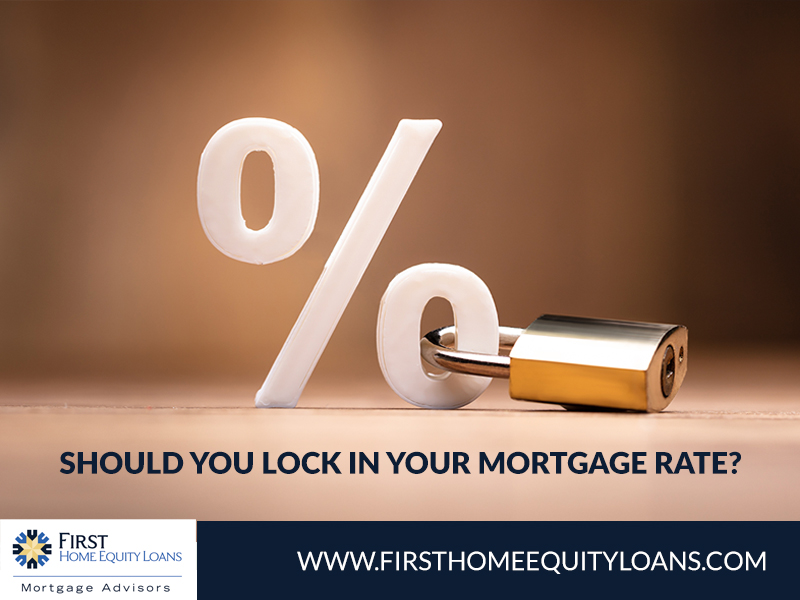When it comes to buying a home and securing a mortgage, one of the biggest decisions you’ll face is whether or not to lock in your interest rate. With interest rates constantly fluctuating, it can be difficult to know when the right time is to lock in your rate. In this blog post, we’ll explore the pros and cons of locking in your mortgage rate to help you make an informed decision.
One of the biggest advantages of locking in your mortgage rate is that it protects you from potential interest rate hikes. If you lock in a rate and interest rates rise before you close on your loan, you’ll still get the lower locked-in rate. This can save you thousands of dollars over the life of your loan. On the other hand, if you choose not to lock in your rate and interest rates rise, you could end up paying significantly more for your mortgage.
WHEN Should You Lock In Your Mortgage Rate?
Another advantage of locking in your mortgage rate is that it gives you peace of mind. Knowing exactly what your monthly payment will be can help you budget and plan for other expenses. It also eliminates the stress of wondering how changes in interest rates will affect your mortgage payments. However, if interest rates fall after you’ve locked in your rate, you won’t benefit from the lower rates unless you pay a fee to renegotiate.
One important factor to consider when deciding whether to lock in your mortgage rate is how long it will take to close on your loan. Most lenders offer rate locks for 30, 45, or 60 days. If there’s a chance that delays could push back your closing date beyond the expiration of your rate lock, it may not be worth it to lock in a rate that will expire before closing. In this case, floating your rate until closer to closing might be a better option.
WHEN Should You Lock In Your Mortgage Rate?
It’s also important to consider where interest rates are currently trending when deciding whether to lock in your mortgage rate. If rates are already at historic lows and experts predict they will rise soon, it may make sense to lock in a low rate now rather than risk paying more later on. Conversely, if rates are high and expected to fall further, waiting to see if they drop could save you money in the long run.
Deciding whether or not to lock in your mortgage rate is a personal decision that depends on various factors such as current market conditions, how long it will take to close on your loan, and whether or not you want peace of mind knowing exactly what your monthly payment will be. Ultimately, weighing the pros and cons of locking in your mortgage rate can help you make an informed decision that suits your financial goals and needs.
Some of the best counsel is to speak to a Mortgage Advisor at First Home Equity Loans, our team has worked with 1000’s of home buyers across the country. Be sure to check out our team page.
If you did not know, our company is Veteran owned and has a strong desire to help our military heros enjoy home ownership. Speak to our owner Todd Glassman, he will guide you to a team member that will provide wise counsel.
Connect with us on your favorite Social Media… Facebook | LinkedIn | Instagram



